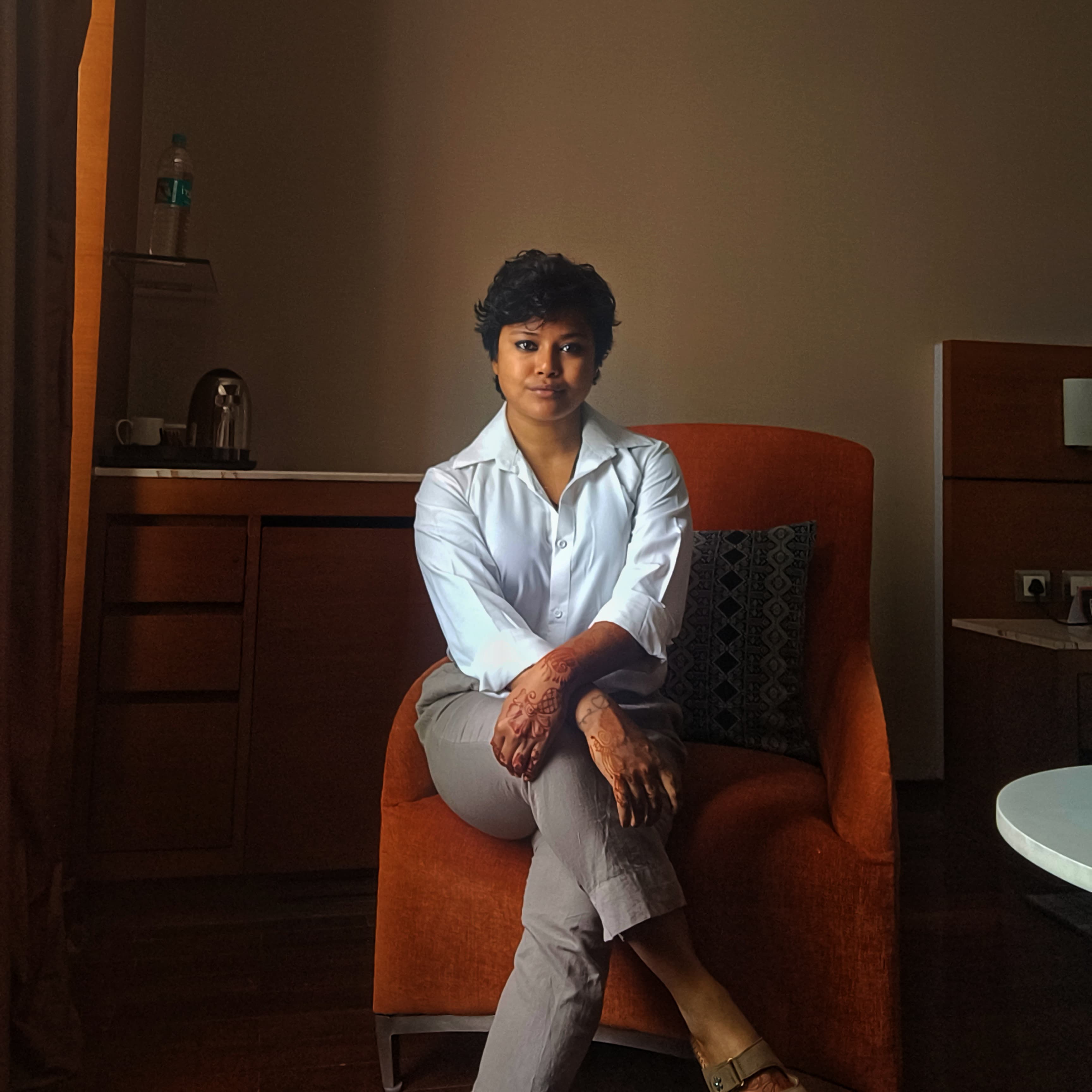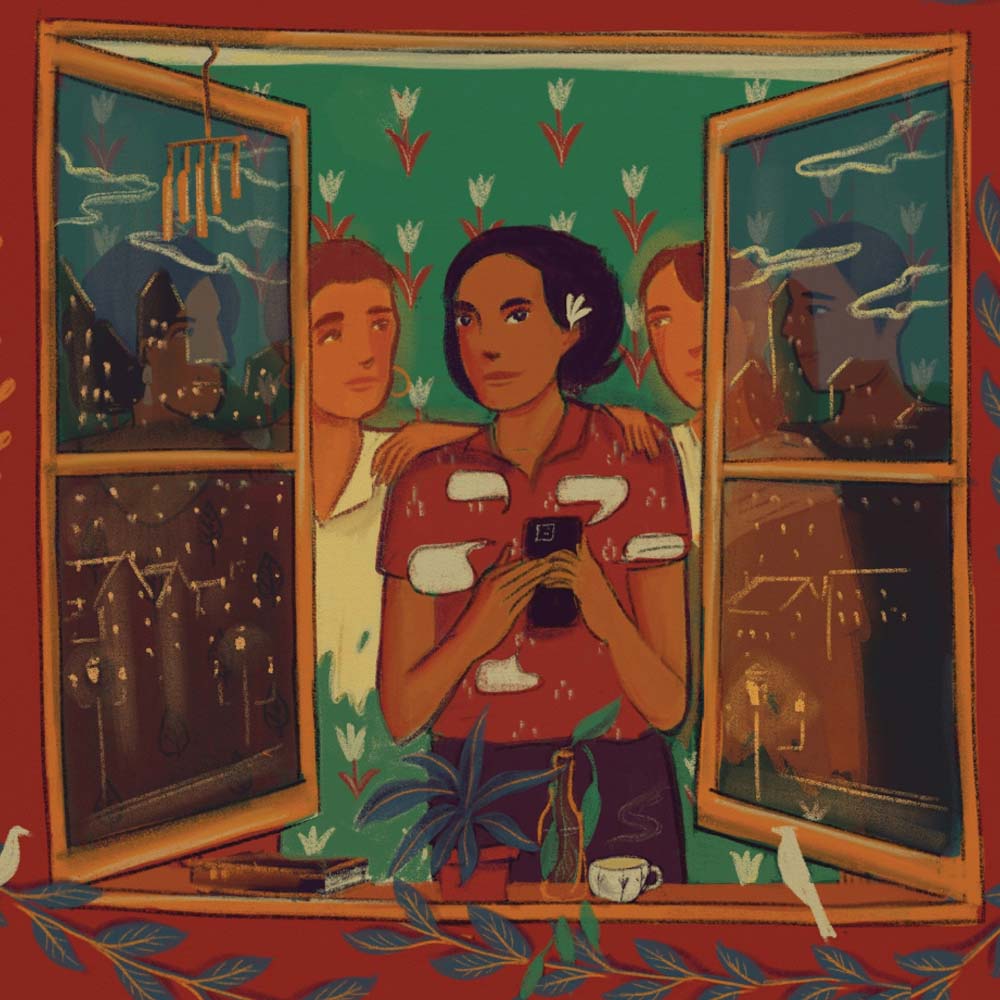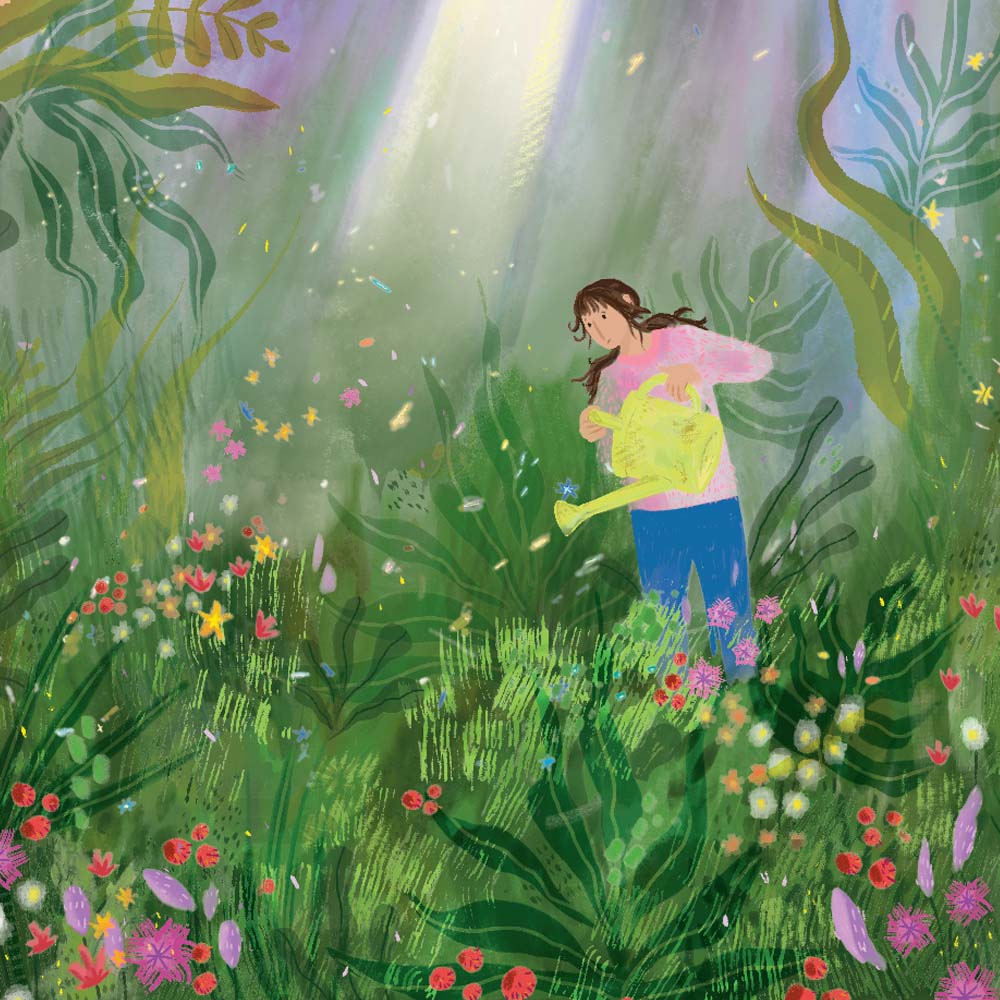Main navigation



My name is Adrija, and my life is defined by profound twists and challenges. Professionally, I am a trauma psychologist and advocate for mental health. My work revolves around supporting survivors of sexual assault, domestic violence, and war trauma. Personally, I am a single parent to a remarkable neurodivergent child. My own experiences with childhood abuse and an abusive marriage deeply influence my professional path. I identify as non-binary and pansexual.
I feel compelled to share my journey because my struggles with suicidal thoughts began in adolescence, and I've spent over a decade learning to not just survive but thrive. Privileges such as a background in psychology, access to therapy, and supportive communities have been pivotal in my healing journey. By sharing my story, I hope to offer insights that may aid others, especially young people, in finding their paths to recovery.
My journey with self-harm started early, as a means to make my parents notice me and give me attention. I wouldn’t tell them how I got hurt. Sometimes, I also did it so that I wouldn’t have to go to classes. The pressures of academic success when I was too depressed to study, led to my first suicide attempt at 15. At that time, I misunderstood my actions as personal failings rather than responses to childhood sexual trauma and emotional neglect. It made me feel that I was inadequate and unlovable.
Over the years, as I grew into a young adult, there were many more attempts. But this pattern of coping with overwhelm peaked when I was stuck in an abusive marriage with a narcissist. In the two years I lived with him, we lost count of how many times I attempted self-harm and suicide.
Today, I acknowledge and respect my powerful resilience. Even when battling such extreme pain, I have not lost the will to live. I think one thing that helped me the most was to truly understand that it is an escape from the pain that I crave, not death. I want to keep living. Just not like this.
My various therapists helped me develop tools and replacement behaviors to monitor and cope with my self-harming thoughts. Simultaneously, they also helped me uncover all the traumatic material that triggered my overwhelm, but safely and systematically so I could learn acceptance.
A true turning point for me was when I was training to be a trauma therapist. Learning about the Poly Vagal Theory helped me get rid of all my shame about self-harm. I realized that it is not at all deliberate and simply how human beings function to survive extreme situations. It completely shifted my perspective, and since then, I have been able to hold space for my grief.
Today, I won’t say that I am free from such thoughts. They do show up now and then, but they’re quite predictable now. I am familiar with my triggers: physiological, emotional, financial, and spiritual. And whenever they come, I know I have been neglecting my self-care needs. Moreover, I know that all these thoughts want from me is expression. So, I either write them out, use art for catharsis, or I speak to my trusted people.
This could be through journaling, group therapy, conversations, movement and dance, visual or performing arts, or even reading a book or watching a movie I resonate with.
Once it is all out of my system, these thoughts lose power over me. Then, I just work on giving myself care and receiving care from others. Soon enough, my resilience shines through, and I bounce back.
My experience with decades of self-harm has taught me that though this is a serious issue, it is nothing to be ashamed of. Human beings are wired in a certain way that forces us to self-harm when we have experienced trauma. And since trauma is so universal, most people likely struggle with self-harm in one way or the other.
Consequently, I need not alienate myself because my mental health is telling me to. Instead, I only need to learn how to feel my feelings without attempting to fix them. More importantly, I need to remember that I cannot do it alone. I need people, and people need me.
So, the next time any of you also feel your inner thoughts encouraging you to isolate yourself, try doing the opposite. I know it’s easier said than done, trust me. I’m almost thirty and still learning to receive care, but it’s the only way.
When we’re sick, the pathogens inside us don’t want us to take medicines, right? So when we’re emotionally unwell, our illness might be telling us to push people away. But we must fight. We must keep searching and find someone, anyone, even our own SELVES, to just witness our pain. I believe, that the more we share about self-harm, the less likely we are to do it.
how helpful was this page?
Feedback helps us improve our content and resources to make the experience better for everyone.






